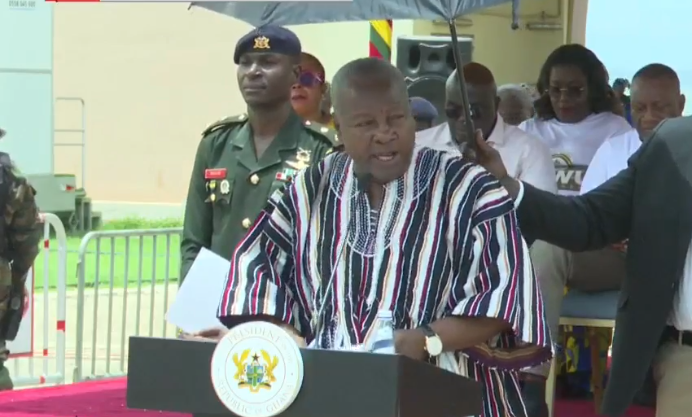President John Dramani Mahama, addressing the nation during the 2025 May Day celebrations, delivered a powerful message of empowerment to public sector workers, urging them to become active guardians of their institutions and challenge mismanagement wherever it occurs. He stressed that state-owned enterprises, ultimately belonging to the citizenry, require the vigilance and outspokenness of their employees to ensure their survival and effective operation. Mahama recognized the difficult position many workers face in poorly managed institutions, emphasizing that their livelihoods are directly tied to the health of these organizations. He pledged his unwavering support for workers who dare to speak out against mismanagement, assuring them that their voices would be heard and acted upon, fostering a culture of accountability within the public sector.
The President’s call to action was not simply a plea for whistleblowing, but a broader appeal for a more engaged and empowered workforce. He acknowledged the years of hardship endured by public sector workers under what he termed “atrociously managed” institutions, institutions that have often been driven towards collapse by incompetent leadership. This mismanagement, he argued, ultimately jeopardizes the very jobs of the workers, making it imperative for them to take ownership of their workplaces and challenge the status quo. Mahama’s promise of presidential backing is a significant statement, offering a degree of protection and encouragement to workers who might otherwise fear reprisal for speaking out. This commitment signals a shift towards greater transparency and worker participation in the management of state-owned enterprises.
Beyond urging vocal opposition to mismanagement, Mahama outlined a broader vision for revitalizing the Ghanaian workforce. He pledged to restore confidence in the public sector and improve working conditions across both public and private domains. This commitment encompasses a range of reforms aimed at addressing persistent issues plaguing the workforce, from delayed salary payments and outdated workplace conditions to bureaucratic hurdles that stifle productivity. By tackling these fundamental concerns, Mahama aims to create a more conducive and motivating environment for all workers, fostering a sense of value and professional dignity.
A central component of Mahama’s proposed reforms involves addressing the glaring disparities in wages within the public sector. He announced plans for constitutional reforms that would pave the way for an independent emolument commission. This commission would be tasked with establishing a fair and equitable wage structure, effectively bridging the significant gap between the compensation of Article 71 office holders (high-ranking government officials) and other public sector employees. This move represents a significant step towards addressing a long-standing grievance among public sector workers, who have often felt undervalued compared to their counterparts in higher office. The establishment of an independent body to determine wages is intended to inject greater objectivity and fairness into the compensation process.
Mahama’s vision for a revitalized public sector extends beyond simply improving wages and working conditions. He articulated a desire to create a more just and productive environment for all workers, emphasizing the importance of their contributions to national development. By empowering workers to speak out against mismanagement and by enacting reforms to address systemic issues within the public sector, Mahama aims to foster a more efficient, equitable, and motivated workforce. This commitment to improving the lot of workers is not merely a matter of economic pragmatism, but a recognition of the fundamental dignity of labor and the crucial role workers play in shaping the nation’s future.
In essence, President Mahama’s May Day address was a clarion call for change, urging public sector workers to become active participants in the governance of their institutions. He offered a comprehensive approach to revitalizing the workforce, encompassing not only immediate improvements in working conditions and wages but also systemic reforms to address the root causes of inefficiency and inequity. His promise of support for workers challenging mismanagement represents a significant step towards greater transparency and accountability within the public sector, ultimately aiming to create a more just and productive environment for all Ghanaians.


